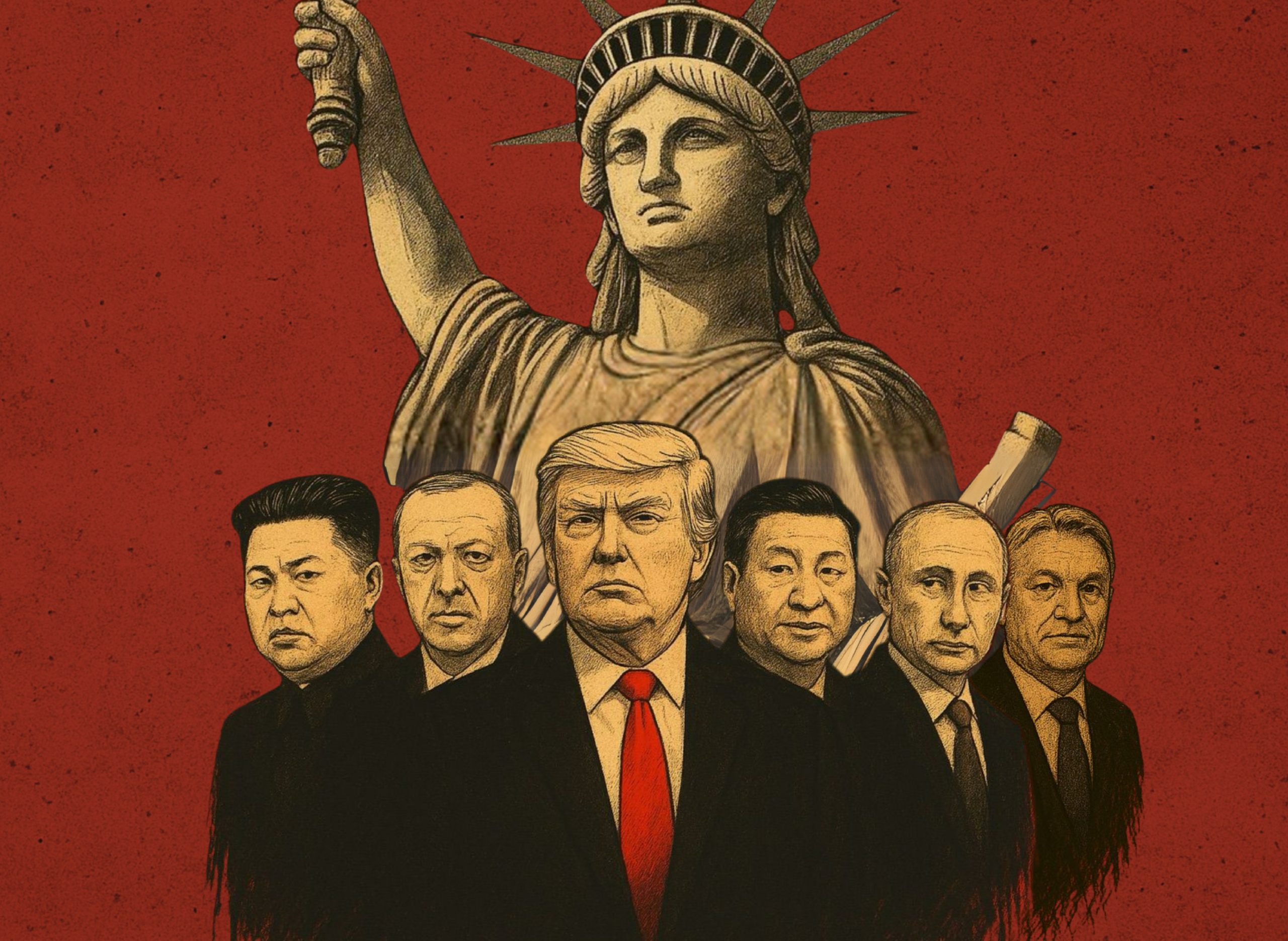
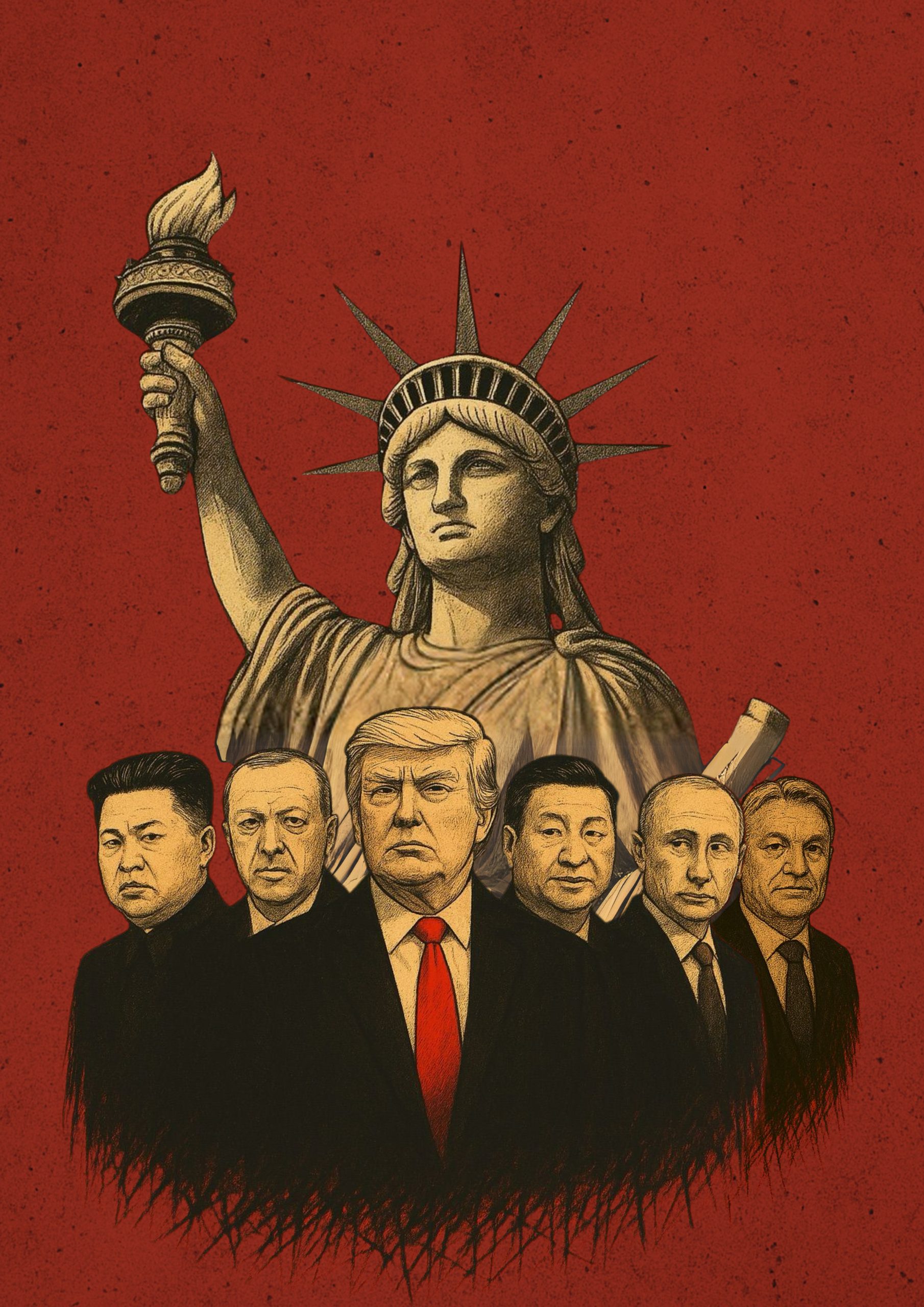
Democracy is like owning a house. It requires maintenance, updating, upgrading, and near-constant care. One might bemoan these seemingly mundane tasks, such as fixing a leaky pipe or applying a new coat of paint. However, without this maintenance, the house will soon fall into disrepair and potentially become unlivable. Democracy is not easy to maintain and can similarly start to fail, but I would like to argue that maintaining its foundations and components daily is a necessary task for all people who enjoy its freedoms. Put simply, this just means being involved in one’s local community and caring for each other.
Without the legal structures, social programs, and guaranteed freedoms of democracy, life can be uncomfortable, complicated, and outright violent for its citizens. Democracy is not a binary state. A country cannot simply declare itself a democracy and be one. For example, North Korea calls itself the Democratic People’s Republic of Korea—a laughable presumption considering its deep and systemic oppression of its people. Hence, when a country calls itself a democracy, it is an important exercise to determine whether or not they are upholding democratic ideals. Still, taking this exercise one step further, it is essential to assess whether or not democracy’s citizens are doing the day-to-day maintenance of the democratic institutions and processes that support them and their freedoms.
Presently, autocracy is on the rise around the world, and ironically, it is democracy that is responsible for it. In 1917, the Bolsheviks in Imperial Russia rose to power by building a shadow government and seizing institutional and resource nodes through violent insurrection. Similarly, Nazi Germany came to fruition through intimidation and violence. However, in today’s modern world, autocrats are duly elected through sound institutions and universal voting suffrage. It makes me wonder if a metaphor for democracy in the 21st century is like Anakin Skywalker’s fall to the dark side in Star Wars—becoming that which it was meant to destroy.
Why do democracies elect leaders who do not follow the core fundamentals of freedom and the rule of law? I believe this is because many countries do not provide their youth with proper civics education or the skills to evaluate the ideas presented by their leaders effectively. Autocrats are running for and legitimately winning elections around the world. As I go about my life here in the United Kingdom, it is astonishing to me just how popular autocrats are among everyday people—Uber drivers, my veterinarian, the bartender at the pub—all hear my American accent and tell me how wonderful it must be to have Donald Trump as my President because I am “getting my money back” or because this administration is “taking the country back.”
It has made me realize that these vague and undefined terms appeal to those who yearn for disengagement with democracy. It is easier to say “take our country back” than it is to deliver a message to voters such as: “Immigration is a complicated issue, but the free flow of labor makes our economy stronger, and diversity of culture and experience makes us all more understanding and compassionate.” Therefore, I do not want to spend this article solely discussing the dangers of autocracy in practice. I would also like to comment on the risks of cultural zeitgeists that enable autocrats to take power through democratic processes.
is a doctoral researcher at the University of Warwick, specializing in democratic oversight of national security agencies. He previously studied international relations at Boise State University as a Frank Church Scholar of Public Affairs and went on to earn a master’s degree from Johns Hopkins University. He has also served as a policy analyst with the U.S. Department of State and the Department of Defense.
Thus, I have two appeals: First, citizens should identify and support politicians, no matter the party, who actively promote and protect democracy in their service in elected office. Second, there are small things citizens can do in their everyday lives to encourage and enhance democracy in their communities. Democracy is not won and lost in a presidential election, but in small efforts such as attending city council meetings or being involved with local schools. First, one must examine how modern liberal democracy came into practice and how it backslides into autocracy.
True Democracy is Very Young
I am an American citizen. And my countrymen often speak poetically of inventing liberal democracy in our fight for independence from Great Britain. However, the United States was not a liberal democracy at its founding—definitionally antithetical to democracy’s core principles. Women and people of color could not vote. American democracy is not 250 years old, but it is a mere 60 years old. Only when the Civil Rights Act of 1964 was passed, in my intellectual opinion, did the United States truly begin its promise of a democratic experiment.
To consider the question of pure democracy fully, it is essential to strip the question down to its fundamentals. In his seminal article, “Dictatorship, Development, and Democracy,” Mancur Olson talks about government as bandits. In essence, governments are bandits. They have to take something from their subjects to maintain safety and security, as well as their stability of power. Olson distinguishes between two kinds of bandits: roving and stationary. Roving bandits move from community to community, taking what they want and then moving on. Stationary bandits, however, have a different calculus.
They have an interest in public welfare. They want the population to grow in wealth and health because that means that they can take more in the future. This is a clever way of saying that a wealthier and more productive population pays more in taxes and generates more in commerce and trade. It is therefore in the interest of a bandit (the government) to care for the freedoms and welfare of their populations because, as their wealth and prosperity grow, so does the ability of the bandit to do more with their power. I contend that autocrats are roving bandits. To look at a modern example, Vladimir Putin in Russia has accumulated massive amounts of personal wealth for himself and his allies.
Russia is a modern industrialized state with nuclear weapons and a highly advanced industry. And yet, it ranks 63rd globally in the UNDP’s Human Development Index. Russia’s inequality in wealth and standard of living is a direct result of its autocracy. Vladimir Putin is a roving bandit who only cares for the elite, not the populace. Modern Russia is the embodiment of the often-cited quote, “For my friends, anything; and for my enemies, the law.” Therefore, it is important to look at the playbook of autocrats and how they use the very democratic institutions, crafted to protect freedoms, to undermine them.
The Autocrat’s Blueprint
Media, courts, and constitutions. That is how any would-be autocrat ends their country’s democracy. This is how autocracy can take hold democratically and legally, slowly and without physical violence. For the sake of argument, I will focus on countries such as Russia, Hungary, and the United States—all of which are at various stages of democratic backsliding. In these countries, autocracy does not come overnight. It comes as a slow-creeping march, chipping away at institutions until nothing can check the power of leaders.
Thus, I have two appeals: First, citizens should identify and support politicians, no matter the party, who actively promote and protect democracy in their service in elected office. Second, there are small things citizens can do in their everyday lives to encourage and enhance democracy in their communities. Democracy is not won and lost in a presidential election, but in small efforts such as attending city council meetings or being involved with local schools. First, one must examine how modern liberal democracy came into practice and how it backslides into autocracy.
True Democracy is Very Young
I am an American citizen. And my countrymen often speak poetically of inventing liberal democracy in our fight for independence from Great Britain. However, the United States was not a liberal democracy at its founding—definitionally antithetical to democracy’s core principles. Women and people of color could not vote. American democracy is not 250 years old, but it is a mere 60 years old. Only when the Civil Rights Act of 1964 was passed, in my intellectual opinion, did the United States truly begin its promise of a democratic experiment.
To consider the question of pure democracy fully, it is essential to strip the question down to its fundamentals. In his seminal article, “Dictatorship, Development, and Democracy,” Mancur Olson talks about government as bandits. In essence, governments are bandits. They have to take something from their subjects to maintain safety and security, as well as their stability of power. Olson distinguishes between two kinds of bandits: roving and stationary. Roving bandits move from community to community, taking what they want and then moving on. Stationary bandits, however, have a different calculus.
They have an interest in public welfare. They want the population to grow in wealth and health because that means that they can take more in the future. This is a clever way of saying that a wealthier and more productive population pays more in taxes and generates more in commerce and trade. It is therefore in the interest of a bandit (the government) to care for the freedoms and welfare of their populations because, as their wealth and prosperity grow, so does the ability of the bandit to do more with their power. I contend that autocrats are roving bandits. To look at a modern example, Vladimir Putin in Russia has accumulated massive amounts of personal wealth for himself and his allies.
Russia is a modern industrialized state with nuclear weapons and a highly advanced industry. And yet, it ranks 63rd globally in the UNDP’s Human Development Index. Russia’s inequality in wealth and standard of living is a direct result of its autocracy. Vladimir Putin is a roving bandit who only cares for the elite, not the populace. Modern Russia is the embodiment of the often-cited quote, “For my friends, anything; and for my enemies, the law.” Therefore, it is important to look at the playbook of autocrats and how they use the very democratic institutions, crafted to protect freedoms, to undermine them.
The Autocrat’s Blueprint
Media, courts, and constitutions. That is how any would-be autocrat ends their country’s democracy. This is how autocracy can take hold democratically and legally, slowly and without physical violence. For the sake of argument, I will focus on countries such as Russia, Hungary, and the United States—all of which are at various stages of democratic backsliding. In these countries, autocracy does not come overnight. It comes as a slow-creeping march, chipping away at institutions until nothing can check the power of leaders.
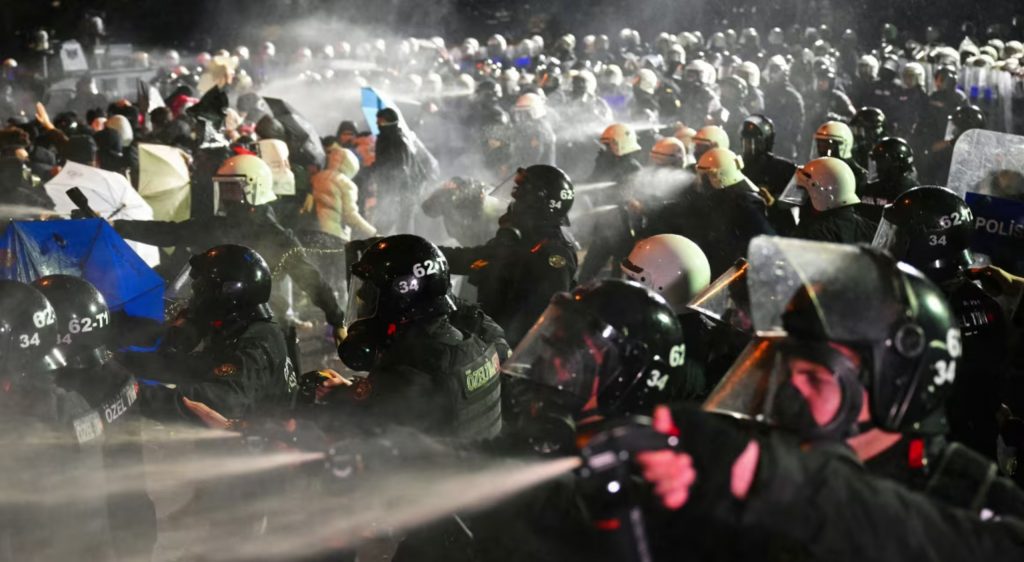
The first step in this process is to control the media. In Hungary, Viktor Orbán has slowly consolidated media entities so that they are owned by his friends and those sympathetic to his autocratic style of rule. Further down the path of backsliding is Russia, where all independent media have been eliminated under the rule of Vladimir Putin. Presently, in the United States, Donald Trump has launched a crusade against fake news that writes critical stories about him. He has sued The Wall Street Journal and used his executive power to cut funding to the Corporation for Public Broadcasting, which oversees media outlets like National Public Radio and the Public Broadcasting Service.
By controlling the media narrative, autocrats can control what low-information voters see. I would imagine anyone reading this magazine is already a high-information voter, but imagine your relatives on Facebook and Instagram who are not so engaged with politics. How do they make their voting decisions? It is likely, though, a mere thirty-second analysis of what they see in a media outlet. If an autocrat controls those outlets, then they do not get a well-informed and critical analysis of the consequences of their leadership.
The 2016 U.S. presidential election was the first in history where the majority of voters obtained their information from social media rather than reputable institutions such as The New York Times or primary cable channels’ nightly news reports. Since then, information consumption has dramatically shifted to alternative sources such as podcasts and social media. Our intellectuals and talking heads speak of this trend as if it is something that can be reversed—as if our youth can switch from TikTok to the BBC with the right persuasion. Autocrats are winning the algorithms in new media. For example, the largest YouTube channels that are categorized as “news” are all far-right populist polemicists.
Information control is critical to a would-be autocrat. Journalism is the informal fourth branch of government that has a vital mission to uphold democracy, transparency, and accountability. When U.S. President Richard Nixon abused his power, sending operatives to break into the opposition party headquarters to steal proprietary information, it was two journalists, Bob Woodward and Carl Bernstein of The Washington Post, who worked tirelessly to break the story. Investigative journalism is the autocrat’s worst enemy because they expose attempts to subvert the law. In Russia, Anna Politkovskaya worked to expose crime and corruption in the early days of the regime of Vladimir Putin.
Politkovskaya worked at a time before Russia criminalized speaking against the regime or declared media organizations “undesirables” or “foreign agents.” Her writing stands as perhaps the most critical work exposing Russian democratic backsliding. Anna Politkovskaya was murdered near her apartment building on 7 October 2007. Her killer was never found, but the bullet used to murder her was only used in Russian police weapons. I primarily focus on the media because it is the institution that has most shaped the narrative by which people cast their votes. But step two in the autocrat’s blueprint is control of the courts. As these leaders slowly undermine democratic norms, they need the backing of the judiciary to uphold challenges to their decisions.
By controlling the media narrative, autocrats can control what low-information voters see.
All three example countries in our autocrats’ blueprint have used the courts to their advantage to various degrees. The American populist right has focused on the courts for decades. The Federalist Society identifies young legal talent that is sympathetic to their causes and assists them in advancing their careers. Furthermore, they are assisted by political powers in the legislature to ensure that only judges sympathetic to autocratic regimes are appointed to courts. The primary example is how Senator Mitch McConnell blocked the Obama administration’s appointment of a centrist judge with impeccable bona fides to the U.S. Supreme Court and fast-tracked three Trump administration appointments to the same body just years later. With an autocratic-sympathetic majority, the Supreme Court struck down the Roe v. Wade decision that gave women in the United States autonomy over their reproductive care.
There are several other examples of the manipulation of courts by autocrats from around the world. Hungary is an example of what the United States could be ten years from now. The Orbán administration has consistently utilized its executive power to impose term limits on judges deemed unfriendly to its agenda and to appoint judges from its ranks to fill these positions. Legal backstopping is critical to this theme of autocrats using democratic institutions to impose their anti-democratic will. Recall the previous quote once more: “For my friends, anything; for my enemies, the law.” The final step in the autocrat’s blueprint is gaming the electoral system. This does not require a long discussion because once the media and the courts are sympathetic to the cause, it is quite easy to ensure that the legislature will fall in line with their will.
The most prescient example is the current effort by Governor Greg Abbott of Texas to redraw the state’s electoral map to all but guarantee more Republican seats in the legislature that will blindly rubber-stamp an autocrat’s agenda. In my home state of Idaho, one of the most Republican-friendly states in the Union, the legislative district splits right between the capital city of Boise. Otherwise, Idaho might elect a centrist or left-of-center representative. The result is a race to the bottom, so to speak, among members of the Republican Party who will bootlick an autocratic agenda so that they can hold office. But herein comes the second charge of this article: believers in democracy must find the people who hold elected office and are willing to fight for democratic values, no matter their party or political ideology. So I would like to introduce a case study of my political hero: Senator Frank Church.
Look for the Heroes
In the maintenance of democracy, one must look to the unsung heroes. Oftentimes, these are politicians who might not be household names but do the important work to buttress the democratic institutions of their countries. Perhaps no better example of such an elected official is Senator Frank Church from the United States. It is crucial for readers to look for such politicians in their own countries—those that do not seek the spotlight and fame of higher office but do the hard and litigious work to preserve, protect, and enhance democracy.
Frank Church served in the United States Senate from 1957 to 1981. He is not a figurehead of a movement or a very well-known name in the United States the way that Donald Trump or Barack Obama is. Still, he might be one of the most consequential politicians of the 20th century because his efforts and legislation had the foresight to prevent democratic backsliding in the United States. Frank Church was the man who predicted a future attempt at establishing autocracy in the United States and wrote the laws to prevent it. Here is a brief tour of that legislative work. Church is best known for his work investigating the U.S. security state. His investigation of the CIA and FBI in 1975 established the modern standard of oversight and accountability over intelligence agencies. At the time, the CIA was conducting assassinations and overthrowing foreign governments.
The FBI was spying on the U.S. Civil Rights movement—actions that were antithetical to democratic values and more akin to the work of secret police of contemporary dictatorships. Today, Frank Church is popular among government skeptics, investigative journalists, and those such as U.S. Congressman Jim Jordan who believe that the “Deep State” is out to malign a president’s political enemies. However, that is not the Frank Church that I have studied. In my work with his papers and the Frank Church Institute at Boise State University, I have come to understand Frank Church as an ardent believer in the institutions of democracy. His investigation into U.S. intelligence agencies pivoted their work away from superfluous domestic concerns and back towards U.S. enemies abroad. Church did not hate the security state. He wanted it to work for democracy and not in spite of it.
Although Church is best known for his work investigating intelligence agencies, as stated in his biography Fighting the Odds, Senator Church said the accomplishment he was most proud of was his work on the National Emergencies Act of 1976. At the time, there were well over a hundred declared “emergencies” in the United States. These declarations gave the President enhanced powers to work without the typical due process of checks and balances. The NEA came to fruition in 2019 when President Trump declared a national emergency to requisition the funding for a wall on the U.S. border with Mexico. This piece of legislation might not make news, but it has prevented the American executive from abusing the power of their office for undemocratic means. Had Senator Church not given such attention to this issue decades ago, there might be a very different political reality in the United States today.
Typically, sovereign law stops at one’s border. In our university classes, we are always taught that the international system is an “anarchy” at the state level. I disagree. Another hallmark of Frank Church’s legislative work is the Foreign Corrupt Practices Act. The FCPA ensured that American businesses and politicians were held liable not only for corrupt acts on American soil but also abroad. This is a critical component of this discussion of democracy and its promotion. If a country’s values stop at its borders, then it is worth nothing.
This extended tour of a single politician is necessary because it is important to remember that there are strong public servants who uphold liberalism and democracy in their purest forms, even if they do not get their likeness cast in bronze and displayed in their nation’s capitals. It is important to find modern-day heroes of democracy today and support them and their work. In countries that have fallen to populism and autocracy, some of these people pay with their lives. Consider the work of Russian heroes such as Anna Politkovskaya, Boris Nemtsov, and Aleksei Navalny—all of whom stood against Russian autocracy and were killed by the state for it. For countries like Russia, it is already too late, but in the West, it is not.
Frank Church passed many decades ago, but there are heroes doing important work today who deserve the support of the citizenry. Chris Murphy, U.S. Senator from Connecticut, is one name that comes to mind. He is a cogent mind on foreign policy, an ardent believer in the rule of law and coequal branches of government, and he has done important work on curbing gun violence in the U.S. However, he is not exactly a household name. I am certain that there are Churches and Murphys doing the important work in every democratic government around the world.
The Failing Appeal of Democracy
Is democracy beneficial? This is the most critical question for this tour of autocracy. Populism and anti-democratic sentiment are waning in the Western world. This brings me to my second charge of this article: it is incumbent on everyday citizens to do the day-to-day upkeep to maintain the promise and benefits that liberal democracy gives. There are several reasons why autocracy has a genuine appeal among a large portion of the population. When I teach university courses on Russian politics, I have my students read a chapter from Fyodor Dostoevsky’s novel The Brothers Karamazov. The chapter is called The Grand Inquisitor. To briefly summarize, it is a hypothetical debate between Christ and a church official during the Spanish Inquisition. The debate centers around human nature and free will. It is essential to answer the question: should we have the freedom from, or the freedom to?

The first step in this process is to control the media. In Hungary, Viktor Orbán has slowly consolidated media entities so that they are owned by his friends and those sympathetic to his autocratic style of rule. Further down the path of backsliding is Russia, where all independent media have been eliminated under the rule of Vladimir Putin. Presently, in the United States, Donald Trump has launched a crusade against fake news that writes critical stories about him. He has sued The Wall Street Journal and used his executive power to cut funding to the Corporation for Public Broadcasting, which oversees media outlets like National Public Radio and the Public Broadcasting Service.
By controlling the media narrative, autocrats can control what low-information voters see. I would imagine anyone reading this magazine is already a high-information voter, but imagine your relatives on Facebook and Instagram who are not so engaged with politics. How do they make their voting decisions? It is likely, though, a mere thirty-second analysis of what they see in a media outlet. If an autocrat controls those outlets, then they do not get a well-informed and critical analysis of the consequences of their leadership.
The 2016 U.S. presidential election was the first in history where the majority of voters obtained their information from social media rather than reputable institutions such as The New York Times or primary cable channels’ nightly news reports. Since then, information consumption has dramatically shifted to alternative sources such as podcasts and social media. Our intellectuals and talking heads speak of this trend as if it is something that can be reversed—as if our youth can switch from TikTok to the BBC with the right persuasion. Autocrats are winning the algorithms in new media. For example, the largest YouTube channels that are categorized as “news” are all far-right populist polemicists.
Information control is critical to a would-be autocrat. Journalism is the informal fourth branch of government that has a vital mission to uphold democracy, transparency, and accountability. When U.S. President Richard Nixon abused his power, sending operatives to break into the opposition party headquarters to steal proprietary information, it was two journalists, Bob Woodward and Carl Bernstein of The Washington Post, who worked tirelessly to break the story. Investigative journalism is the autocrat’s worst enemy because they expose attempts to subvert the law. In Russia, Anna Politkovskaya worked to expose crime and corruption in the early days of the regime of Vladimir Putin.
Politkovskaya worked at a time before Russia criminalized speaking against the regime or declared media organizations “undesirables” or “foreign agents.” Her writing stands as perhaps the most critical work exposing Russian democratic backsliding. Anna Politkovskaya was murdered near her apartment building on 7 October 2007. Her killer was never found, but the bullet used to murder her was only used in Russian police weapons. I primarily focus on the media because it is the institution that has most shaped the narrative by which people cast their votes. But step two in the autocrat’s blueprint is control of the courts. As these leaders slowly undermine democratic norms, they need the backing of the judiciary to uphold challenges to their decisions.
It is important to find modern-day heroes of democracy today and support them and their work.
I contend that believers in democracy fall into the freedom to camp. The freedom to pursue education without crushing debt. The freedom to vote in elections without discrimination because of sex or gender. The freedom to marry the person they love, even if that person is of the same gender. Autocrats believe in the freedom from. Freedom from the chaos of the mob, for example. Freedom from the pendulum swing of free and fair elections that swing right and left—the politics of eternity, where a man like Vladimir Putin rules until death. Freedom from the “other,” for example, Donald Trump’s vilification of immigration, when economic research clearly shows that free movement of labor is beneficial for all economies.
I firmly believe in the freedom to camp because, in my experience, when people have the freedom to be themselves, to be healthy, productive, and educated, society benefits as a whole. Protecting society from something “other” is a slippery slope to a loss of freedoms. If we take the freedoms of immigrants, sexual minorities, or women today, even if it does not affect a specific individual, they may very well lose their freedoms sometime in the near future. As Martin Luther King Jr. said, “None are free while others are oppressed.” This is why it is incumbent on citizens to do the work to maintain democracy, not just in a vote for a chief executive every four years but in small acts every day.
Less Talking, More Doing
It is safe to assume the readers of this magazine are in like-minded company—believers in liberal democracy and opponents of autocracy. There is nothing I can write on these pages to offer sage philosophical advice on why this system of government is the most beneficial for everyone—it has to be felt and experienced through the benefits of living in a diverse community of thought and experience. But I will reiterate what I began with: democracy is like a house. It must be well-built and intentionally maintained. It takes different people with different skills and backgrounds to maintain a house, and the same goes for a democracy.
Democracy exists day-to-day, and it is up to the people who care for it to do the little chores that maintain it. This means testifying at local community meetings or running for a small local elected office, such as your school board or your community planning board. Personally, my day-to-day chore to maintain democracy is done in my classroom—not by “indoctrinating,” as the far-right has accused me of doing, but by cultivating an engaging learning space where my students may explore difficult questions and challenge each other while they shape their worldviews. While I teach international relations and geopolitics, which deal in politics on a global scale, I believe that democracy is best cultivated at a local level. Voting for your local school board member is the most important act one can take to maintain democracy.
But maintaining democracy can be as simple as donating clothing to a shelter or picking up trash in a park. It takes a village to ensure everyone is safe and free. In this issue, you will take a tour of different autocrats who have all used a similar playbook, as I mentioned above, to threaten or altogether kill liberal democracy in their countries. As readers take this tour, they should consider the day-to-day activities they can undertake in their communities to enhance and embrace liberal democracy. Autocracy thrives in complacency, and being informed of news and political science research is not enough to keep it at bay. After reading the stories of these autocrats, observe the happenings in your community and identify how you can support and uphold liberal democracy on a day-to-day basis.
All three example countries in our autocrats’ blueprint have used the courts to their advantage to various degrees. The American populist right has focused on the courts for decades.
The Federalist Society identifies young legal talent that is sympathetic to their causes and assists them in advancing their careers. Furthermore, they are assisted by political powers in the legislature to ensure that only judges sympathetic to autocratic regimes are appointed to courts. The primary example is how Senator Mitch McConnell blocked the Obama administration’s appointment of a centrist judge with impeccable bona fides to the U.S. Supreme Court and fast-tracked three Trump administration appointments to the same body just years later. With an autocratic-sympathetic majority, the Supreme Court struck down the Roe v. Wade decision that gave women in the United States autonomy over their reproductive care.
There are several other examples of the manipulation of courts by autocrats from around the world. Hungary is an example of what the United States could be ten years from now. The Orbán administration has consistently utilized its executive power to impose term limits on judges deemed unfriendly to its agenda and to appoint judges from its ranks to fill these positions. Legal backstopping is critical to this theme of autocrats using democratic institutions to impose their anti-democratic will. Recall the previous quote once more: “For my friends, anything; for my enemies, the law.” The final step in the autocrat’s blueprint is gaming the electoral system. This does not require a long discussion because once the media and the courts are sympathetic to the cause, it is quite easy to ensure that the legislature will fall in line with their will.
The most prescient example is the current effort by Governor Greg Abbott of Texas to redraw the state’s electoral map to all but guarantee more Republican seats in the legislature that will blindly rubber-stamp an autocrat’s agenda. In my home state of Idaho, one of the most Republican-friendly states in the Union, the legislative district splits right between the capital city of Boise. Otherwise, Idaho might elect a centrist or left-of-center representative. The result is a race to the bottom, so to speak, among members of the Republican Party who will bootlick an autocratic agenda so that they can hold office. But herein comes the second charge of this article: believers in democracy must find the people who hold elected office and are willing to fight for democratic values, no matter their party or political ideology. So I would like to introduce a case study of my political hero: Senator Frank Church.
Look for the Heroes
In the maintenance of democracy, one must look to the unsung heroes. Oftentimes, these are politicians who might not be household names but do the important work to buttress the democratic institutions of their countries. Perhaps no better example of such an elected official is Senator Frank Church from the United States. It is crucial for readers to look for such politicians in their own countries—those that do not seek the spotlight and fame of higher office but do the hard and litigious work to preserve, protect, and enhance democracy.
Frank Church served in the United States Senate from 1957 to 1981. He is not a figurehead of a movement or a very well-known name in the United States the way that Donald Trump or Barack Obama is. Still, he might be one of the most consequential politicians of the 20th century because his efforts and legislation had the foresight to prevent democratic backsliding in the United States. Frank Church was the man who predicted a future attempt at establishing autocracy in the United States and wrote the laws to prevent it. Here is a brief tour of that legislative work. Church is best known for his work investigating the U.S. security state. His investigation of the CIA and FBI in 1975 established the modern standard of oversight and accountability over intelligence agencies. At the time, the CIA was conducting assassinations and overthrowing foreign governments.
The FBI was spying on the U.S. Civil Rights movement—actions that were antithetical to democratic values and more akin to the work of secret police of contemporary dictatorships. Today, Frank Church is popular among government skeptics, investigative journalists, and those such as U.S. Congressman Jim Jordan who believe that the “Deep State” is out to malign a president’s political enemies. However, that is not the Frank Church that I have studied. In my work with his papers and the Frank Church Institute at Boise State University, I have come to understand Frank Church as an ardent believer in the institutions of democracy. His investigation into U.S. intelligence agencies pivoted their work away from superfluous domestic concerns and back towards U.S. enemies abroad. Church did not hate the security state. He wanted it to work for democracy and not in spite of it.
Although Church is best known for his work investigating intelligence agencies, as stated in his biography Fighting the Odds, Senator Church said the accomplishment he was most proud of was his work on the National Emergencies Act of 1976. At the time, there were well over a hundred declared “emergencies” in the United States. These declarations gave the President enhanced powers to work without the typical due process of checks and balances. The NEA came to fruition in 2019 when President Trump declared a national emergency to requisition the funding for a wall on the U.S. border with Mexico. This piece of legislation might not make news, but it has prevented the American executive from abusing the power of their office for undemocratic means. Had Senator Church not given such attention to this issue decades ago, there might be a very different political reality in the United States today.
Typically, sovereign law stops at one’s border. In our university classes, we are always taught that the international system is an “anarchy” at the state level. I disagree. Another hallmark of Frank Church’s legislative work is the Foreign Corrupt Practices Act. The FCPA ensured that American businesses and politicians were held liable not only for corrupt acts on American soil but also abroad. This is a critical component of this discussion of democracy and its promotion. If a country’s values stop at its borders, then it is worth nothing.
This extended tour of a single politician is necessary because it is important to remember that there are strong public servants who uphold liberalism and democracy in their purest forms, even if they do not get their likeness cast in bronze and displayed in their nation’s capitals. It is important to find modern-day heroes of democracy today and support them and their work. In countries that have fallen to populism and autocracy, some of these people pay with their lives. Consider the work of Russian heroes such as Anna Politkovskaya, Boris Nemtsov, and Aleksei Navalny—all of whom stood against Russian autocracy and were killed by the state for it. For countries like Russia, it is already too late, but in the West, it is not.
Frank Church passed many decades ago, but there are heroes doing important work today who deserve the support of the citizenry. Chris Murphy, U.S. Senator from Connecticut, is one name that comes to mind. He is a cogent mind on foreign policy, an ardent believer in the rule of law and coequal branches of government, and he has done important work on curbing gun violence in the U.S. However, he is not exactly a household name. I am certain that there are Churches and Murphys doing the important work in every democratic government around the world.
The Failing Appeal of Democracy
Is democracy beneficial? This is the most critical question for this tour of autocracy. Populism and anti-democratic sentiment are waning in the Western world. This brings me to my second charge of this article: it is incumbent on everyday citizens to do the day-to-day upkeep to maintain the promise and benefits that liberal democracy gives. There are several reasons why autocracy has a genuine appeal among a large portion of the population. When I teach university courses on Russian politics, I have my students read a chapter from Fyodor Dostoevsky’s novel The Brothers Karamazov. The chapter is called The Grand Inquisitor. To briefly summarize, it is a hypothetical debate between Christ and a church official during the Spanish Inquisition. The debate centers around human nature and free will. It is essential to answer the question: should we have the freedom from, or the freedom to?
I contend that believers in democracy fall into the freedom to camp. The freedom to pursue education without crushing debt. The freedom to vote in elections without discrimination
because of sex or gender. The freedom to marry the person they love, even if that person is of the same gender. Autocrats believe in the freedom from. Freedom from the chaos of the mob, for example. Freedom from the pendulum swing of free and fair elections that swing right and left—the politics of eternity, where a man like Vladimir Putin rules until death. Freedom from the “other,” for example, Donald Trump’s vilification of immigration, when economic research clearly shows that free movement of labor is beneficial for all economies.
I firmly believe in the freedom to camp because, in my experience, when people have the freedom to be themselves, to be healthy, productive, and educated, society benefits as a whole. Protecting society from something “other” is a slippery slope to a loss of freedoms. If we take the freedoms of immigrants, sexual minorities, or women today, even if it does not affect a specific individual, they may very well lose their freedoms sometime in the near future. As Martin Luther King Jr. said, “None are free while others are oppressed.” This is why it is incumbent on citizens to do the work to maintain democracy, not just in a vote for a chief executive every four years but in small acts every day.
Less Talking, More Doing
It is safe to assume the readers of this magazine are in like-minded company—believers in liberal democracy and opponents of autocracy. There is nothing I can write on these pages to offer sage philosophical advice on why this system of government is the most beneficial for everyone—it has to be felt and experienced through the benefits of living in a diverse community of thought and experience. But I will reiterate what I began with: democracy is like a house. It must be well-built and intentionally maintained. It takes different people with different skills and backgrounds to maintain a house, and the same goes for a democracy.
Democracy exists day-to-day, and it is up to the people who care for it to do the little chores that maintain it. This means testifying at local community meetings or running for a small local elected office, such as your school board or your community planning board. Personally, my day-to-day chore to maintain democracy is done in my classroom—not by “indoctrinating,” as the far-right has accused me of doing, but by cultivating an engaging learning space where my students may explore difficult questions and challenge each other while they shape their worldviews. While I teach international relations and geopolitics, which deal in politics on a global scale, I believe that democracy is best cultivated at a local level. Voting for your local school board member is the most important act one can take to maintain democracy.
But maintaining democracy can be as simple as donating clothing to a shelter or picking up trash in a park. It takes a village to ensure everyone is safe and free. In this issue, you will take a tour of different autocrats who have all used a similar playbook, as I mentioned above, to threaten or altogether kill liberal democracy in their countries. As readers take this tour, they should consider the day-to-day activities they can undertake in their communities to enhance and embrace liberal democracy. Autocracy thrives in complacency, and being informed of news and political science research is not enough to keep it at bay. After reading the stories of these autocrats, observe the happenings in your community and identify how you can support and uphold liberal democracy on a day-to-day basis.
Recommended
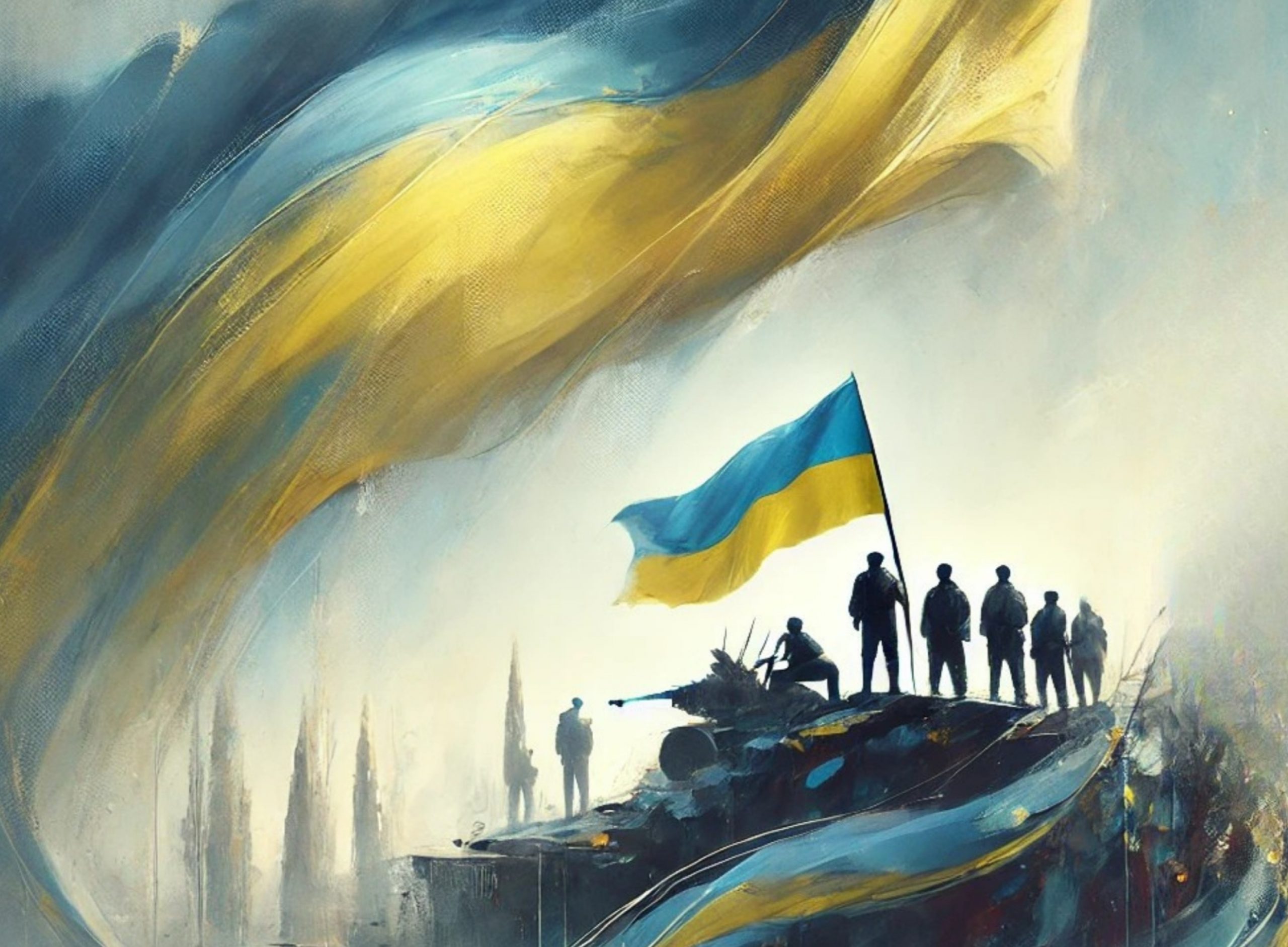
Can Ukraine Win Without Losing?
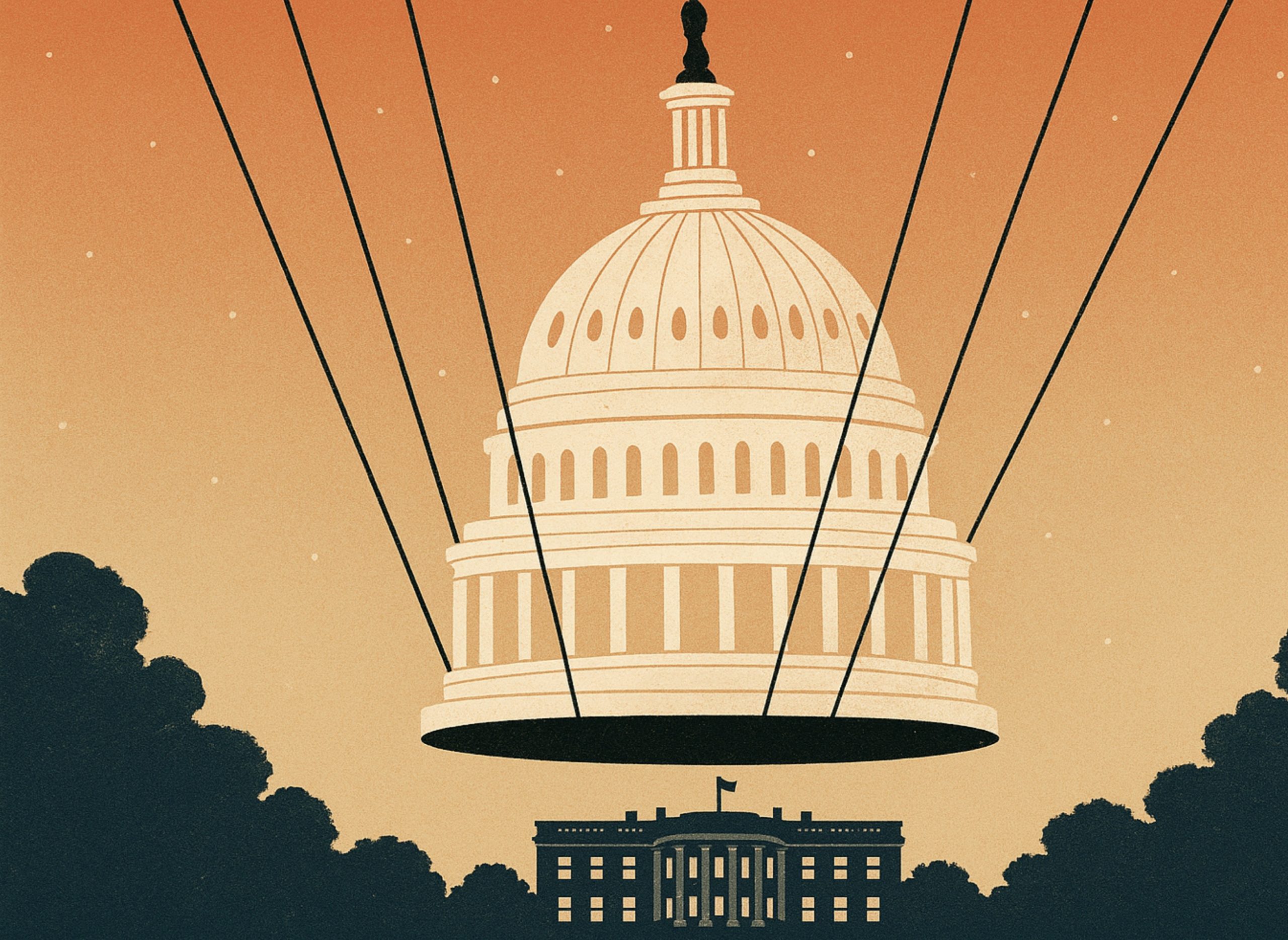
The Jacksonian Doctrine
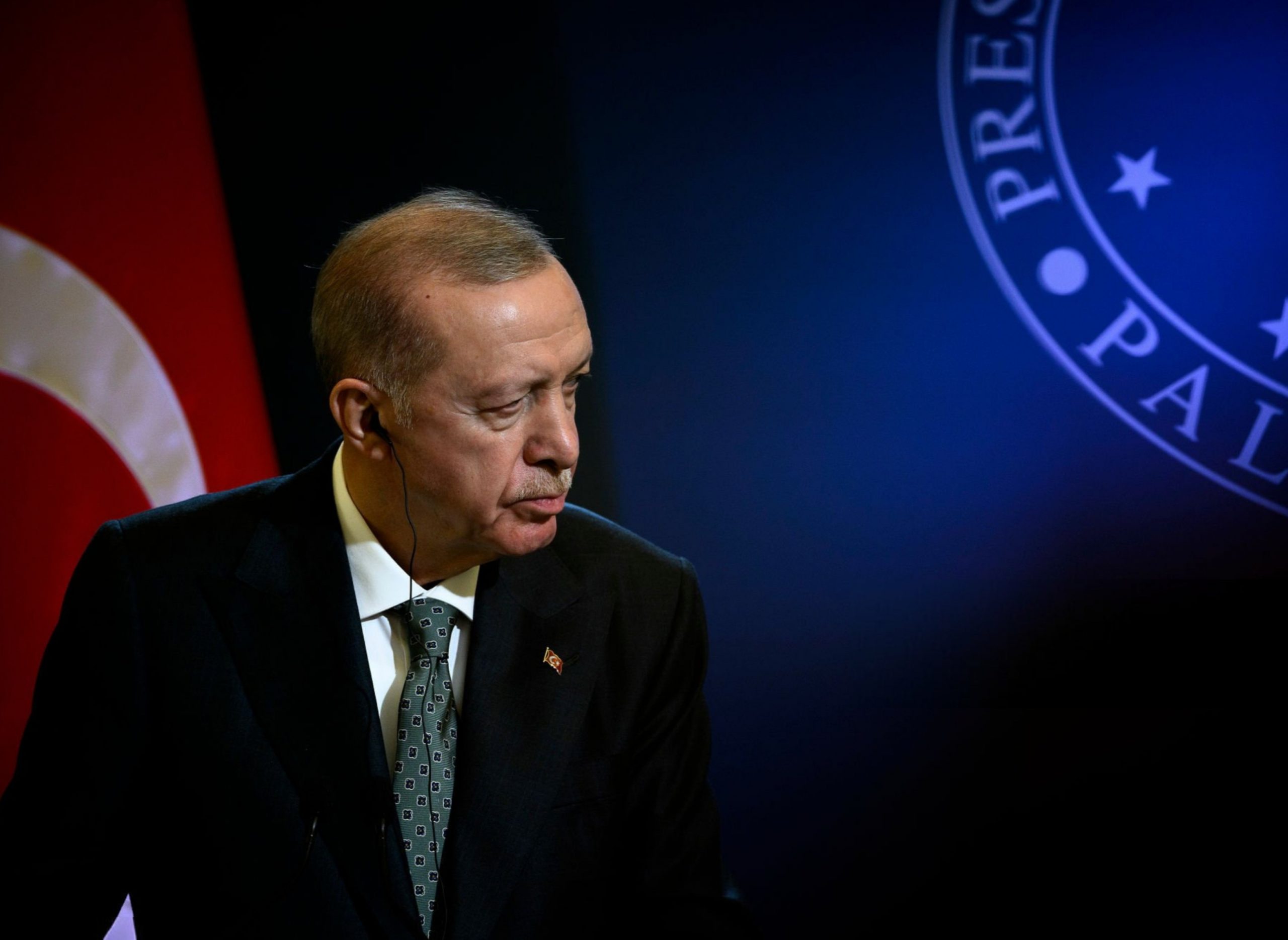
One Chapter Closed, A Harder One Begins
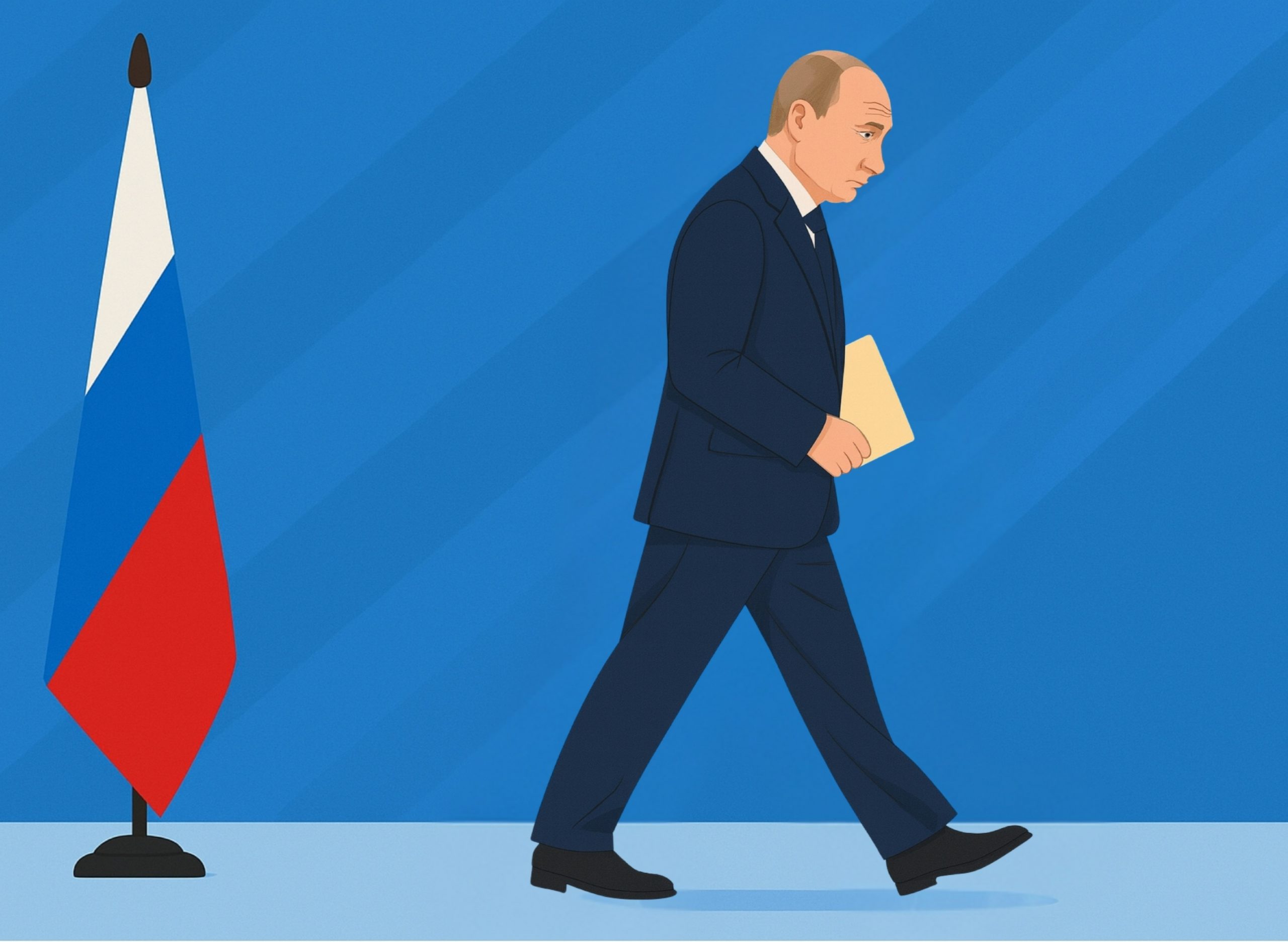
How One Man Became Russia
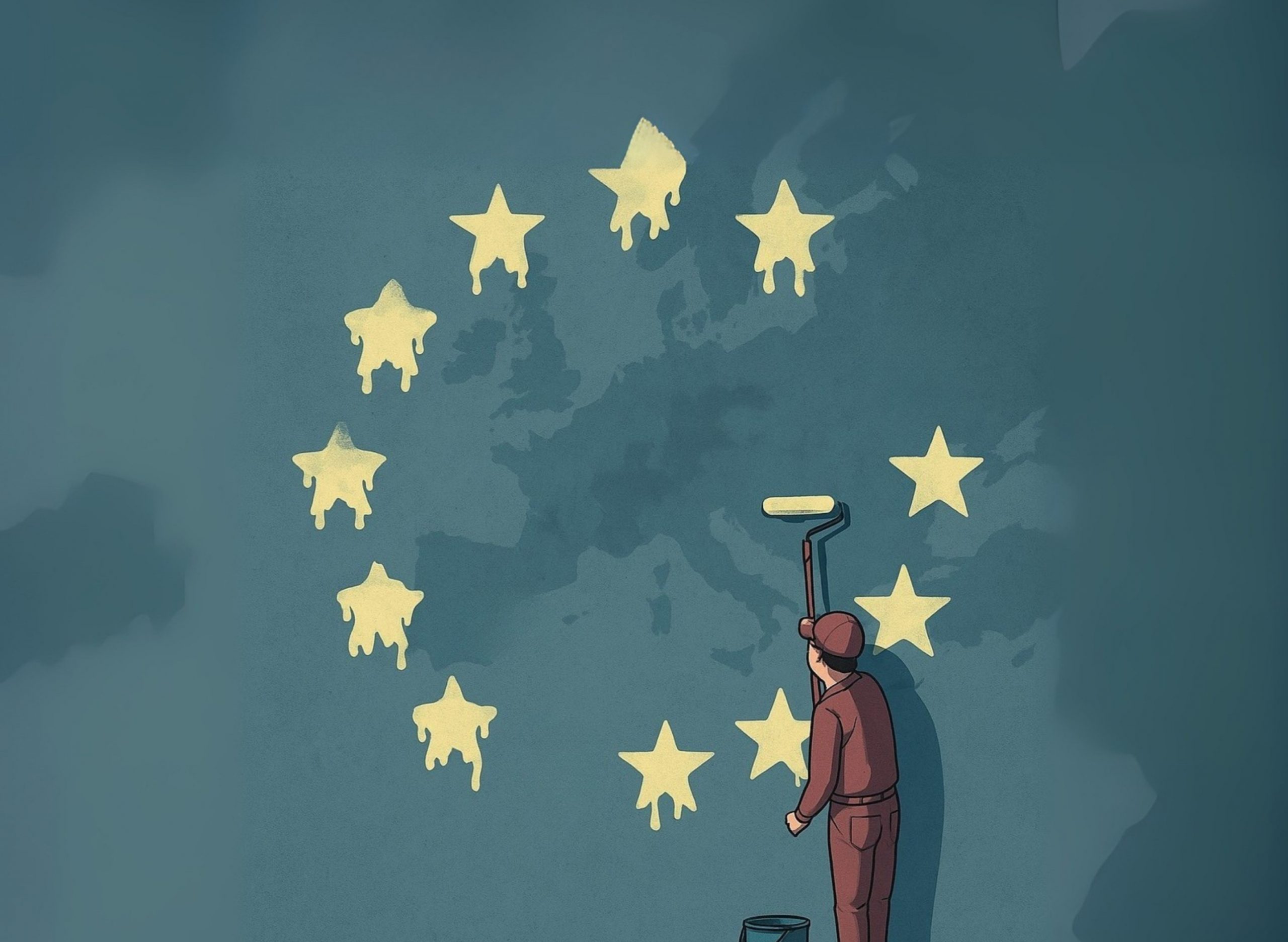
Is a Common European Identity Still Possible?
